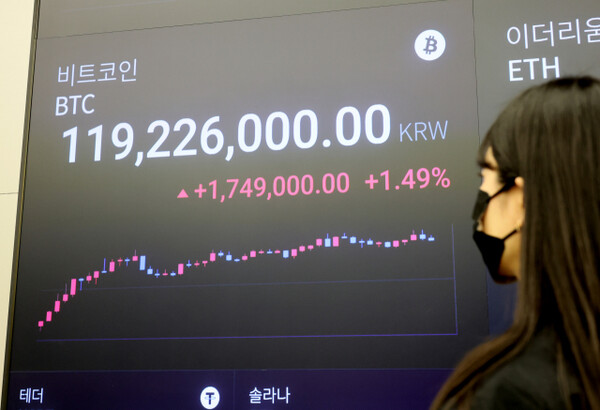
More than 50 days after Donald Trump's inauguration as President of the United States, the virtual asset market has failed to escape from sluggishness, contrary to expectations. Bitcoin is being threatened at the $80,000 level, and major altcoins such as Ethereum and XRP are also showing a plunge.
According to CoinMarketCap, as of 3 pm on the 17th, Bitcoin is trading at $83,253, down 1.39% from the previous day. It is also fluctuating around 12.1 million won in domestic exchanges. Altcoins are also continuing their weakness, with Ethereum, the second-largest in market capitalization, falling 1.75% to $1,879 in a single day, and XRP falling 2.56% to $2.33.
Around the time of Trump's inauguration on January 20, the virtual asset market showed significant volatility. Just before the inauguration, Bitcoin recorded an all-time high of $109,000, but then turned to a downward trend, falling to $87,000 on February 25. When President Trump announced on March 2 that he would include Ethereum, XRP, Solana, and Cardano in strategic reserve assets in addition to Bitcoin, the altcoin prices soared, but then plummeted, making the market unstable again.
The main cause of the weakness in virtual assets is analyzed as the 'trade war' triggered by President Trump. The United States has imposed a 25% tariff on Canada and Mexico, and an additional 10% tariff on China, exacerbating international trade conflicts. Tensions with the European Union (EU) have also increased, raising the possibility of retaliation against US products.
In this economic uncertainty, the likelihood of the Federal Reserve (Fed) maintaining a tightening stance has increased. Concerns about inflation have dampened consumer sentiment, and major investment banks have downgraded their US growth forecasts. The possibility of the Fed keeping interest rates unchanged has also deteriorated the investment sentiment in the virtual asset market.
Although President Trump designated the government-confiscated Bitcoin as a strategic asset on the 6th (local time), the exclusion of new purchases fell short of market expectations. While emphasizing the scarcity of Bitcoin, there was no active purchase, and the non-inclusion of Ethereum and XRP also increased disappointment. Immediately after the announcement, Bitcoin temporarily fell 5.7%, and altcoins also fell in tandem.
Kim Yu-min, a researcher at Hanwha Investment & Securities, said, "In the short term, volatility will continue due to the impact of tariffs and concerns about economic slowdown," but "in the long term, as the adoption of virtual assets by institutions and governments expands, the possibility of Bitcoin being incorporated into the mainstream will increase, which will bring changes to virtual asset prices."







